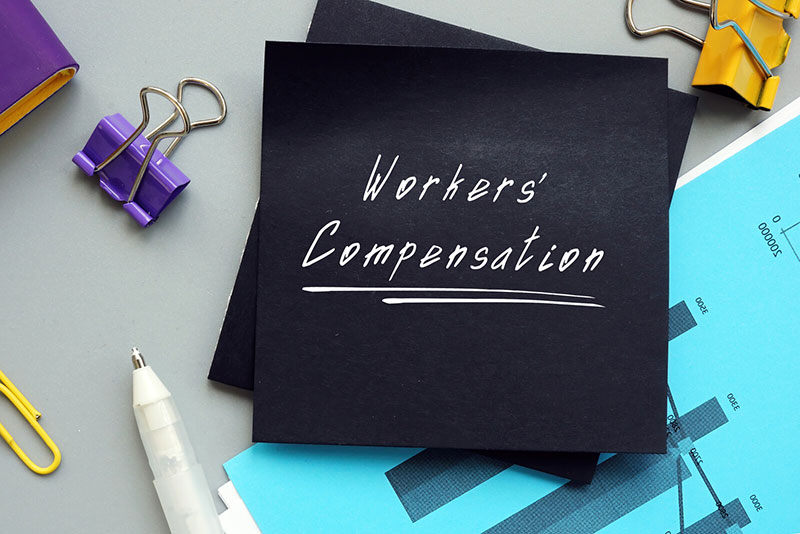Slip, trip, and fall injuries are common in all types of workplaces, ranging from office buildings where the risk is less to construction sites where the risk is high. In fact, slip and fall injuries are the leading cause of workplace injuries in the country. Misplaced equipment, uneven flooring, slippery floor, and debris can all cause these accidents. Typically, these accidents may cause muscle tears, broken bones, traumatic brain injuries, contusions and other serious and incapacitating injuries. Fall injuries could even lead to permanent bodily damage, time away from work and temporary/permanent disability. The question is whether slip, trip, and fall injuries are covered by workers’ compensation insurance. The answer is workers’ compensation being a “no-fault” system, the injured employee may be able to recover workers’ compensation benefits even if he/she were at fault for causing their own injury; the only requirement is that the injury must have happened in the course of work. To prove the injury, medical records and medical record review are vital.
Attorneys handling the above-mentioned workers’ compensation claims utile medical review solutions to have a clear understanding of the injury caused by the slip and fall. This is vital to determine the legal validity of the case. To obtain due compensation, the worker must report the injury to the employer. Most American states require the employee to report the injury within 30 days and in some states the reporting period is as short as three or four days. Then he/she must file a claim, preferably with the assistance of an attorney. If the claim is denied, there is always the option to appeal the insurance company’s decision.
Though some slip and fall injuries are immediately evident, some others such as soft tissue injuries may take some time to display symptoms. That is why it makes sense to report the injury and seek medical attention as soon as the fall occurs, and even if the employee feels fine. It is important to ensure that all details about what caused the fall, the body parts injured, and any pain or dizziness or other discomfort, are all included in the report. To obtain workers’ compensation coverage for a slip and fall injury, there are some important things to remember.
- Get medical attention even if the injuries seem minor or unimportant
- Some organizations have an on-site clinic or nurse, whereas others may have a specific clinic they prefer the employee to use. Some organizations allow the employee to see his or her own preferred provider.
- When seeking medical attention, preserve all evidence of the sustained injuries such as the following.
- Copies of scans, X-rays and other medical imaging records
- The worker’s medical records, including the bill for the clinic or emergency room visit
- Photos of the injuries sustained
- Statements from treating physicians who examined the injuries
What all does Workers’ Compensation Benefits Cover?
- Medical Care Expenses: Coverage is available for any medical treatment the employee needs to recover from the work-related injury. This includes prescriptions, surgery, medical supplies, hospitalization, and prosthetic devices. If the doctor, pharmacy, or treating facility is more than ten miles from the employee’s home, travel expenses may be reimbursed.
- Lost Wages: An employee missing at least seven days of work due to the injury could receive weekly reimbursement amounting to a certain percentage of his or her average weekly wages during the recovery phase. Payment of lost wages may continue until the treating doctor says the employee can return to work.
- For Disability/disfigurement: Workers’ compensation disability categories are:
- Permanent total disability which completely prevents the employee from ever returning to work to his or her current employer or another employer.
- Temporary partial disability that prevents the employee from doing some, but not all of his or her job duties for a limited amount of time.
- Permanent partial disability, which is a permanent injury that partially impairs the employee’s ability to work.
Employers have well-defined procedures that help them determine whether their employee is eligible for workers’ compensation and for how long. This procedure includes regular visits to a physician the employer or the insurance company selects. This doctor will review the extent of the injuries and evaluate whether the employee can return to work. Also, the doctor may issue a statement regarding when the alleged injury or injuries may have occurred. In case the physician states that the injuries could not have been caused by the type of accident alleged in the accident report, the employer or insurer may deny the claim. Claims for injuries that were deliberately caused will also be denied. There is no fixed compensation amount for an injury caused by a slip, trip or fall at the workplace. The compensation amount is paid based on how the injury has impacted the claimant’s life.
A workers’ compensation attorney assists injured employees to file a claim after reviewing the case carefully and determining its legal validity. The workers’ compensation eligibility determination process involves different steps, the most important first step being medical record review. Professional analysis of the claimant’s medical records will help extract valuable evidence regarding the nature of the injury and its impact, which the attorney uses effectively to develop the case.




